Below is a list of our previous Meetups. For more information and available recordings, click on the title link for the past Meetup event. For notices of upcoming Meetups, see our News and Events section.
Helané Wahbeh shared about IONS current research initiatives, the IONS Discovery Lab, IONSx, and the IONS Channeling Research Program. She highlighted new results from the Noetic Signature Inventory program, evaluating individual expressions of our innate intuitive capacities.
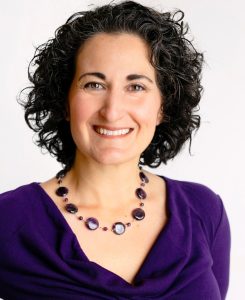
Dr. Helané Wahbeh is the Director of Research at the Institute of Noetic Sciences and an adjunct assistant professor in the Department of Neurology at Oregon Health & Science University. Dr. Wahbeh is clinically trained as a naturopathic physician and research trained with a Master of Clinical Research and two post-doctoral research fellowships. She has published on and spoken internationally about her studies. Dr. Wahbeh is especially known for her research around — and noetic approach to — channeling.
You can watch a recording of this meetup here.
4 May 2024: Prof. Marina Weiler, Dona Edelarzil Munhoz Cardoso: The Phenomenon of Materialization through Cotton
In a small town in Sao Paulo, Brazil, Dona Edelarzil Munhoz Cardoso (also known as the Cotton Medium) continually demonstrates that the world is a far more magical place than we typically appreciate. For over seven decades, this 78-year-old woman demonstrates – right in front of her clients – one of the most intriguing phenomena in the world: the ability to manifest physical objects as a mechanism for spiritual cleansing. In this presentation, Marina Weiler from the University of Virginia will share the Cotton Medium’s story, and showing pictures and videos of what she does that are sure to astonish you.
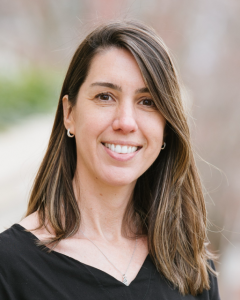
Marina Weiler is an Assistant Professor of Psychiatry and Neurobehavioral Sciences at the Division of Perceptual Studies (DOPS), University of Virginia. She is a trained neuroscientist with a background in neuroimaging, brain stimulation, and basic neuroscience. Marina’s contributions to the field have earned her prestigious awards from institutions such as Fundação Coordenação de Aperfeiçoamento de Pessoal de Nível Superior (CAPES, Brazil), the Brazilian Academy of Neurology, the National Institutes of Health (NIH, U.S.), the Templeton World Charity Foundation, and the Bigelow Institute for Consciousness Research.
You can watch a recording of this meetup here.
9 March 2024: Dr. David Luke, Psychedelics, Consciousness, and the Archaic Revival
An exploration of the role of psychedelics in inducing exceptional human experiences, their shamanic origins and where they intersect with science, ecology and mental health.
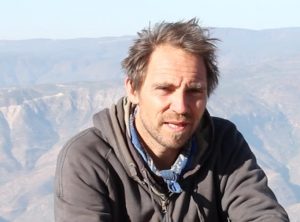
Dr. David Luke is an Associate Professor of Psychology at the University of Greenwich. His research focuses on transpersonal experiences, anomalous phenomena and altered states of consciousness, especially via psychedelics, having published more than 100 academic papers in this area, including thirteen books, including Otherworlds: Psychedelics and Exceptional Human Experience. When he is not running clinical drug trials with LSD, conducting DMT field experiments or observing apparent weather control with Mexican shamans he directs the Ecology, Cosmos and Consciousness salon and is a cofounder and trustee of Breaking Convention: International Conference on Psychedelic Consciousness.
You can watch a recording of this meetup here.
17 February 2024: Dr. Jeff Dunne, Conceiving of a Timeless Reality
There is an increasing body of evidence suggesting that time is not the absolute we are generally led to believe, but rather a cognitive convention. This idea challenges us to think differently, and even adapt the very language we use to describe our experiences. Yet it also offers a powerful, intuitive explanation for many puzzling anomalies, and can grant insights into the nature of synchronicities, precognition, non-local phenomena, and our relationship to the so-called objective universe.
In this Meetup, Dr. Dunne will share a model for thinking about reality informed by decades of consciousness research and insights from the study of syntropy/teleology.
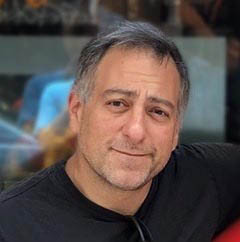
Dr. Jeffrey Dunne is President of the International Consciousness Research Laboratories. In addition to his own explorations into the nature of consciousness through ICRL, as well as several decades of research at the Johns Hopkins University in fields that ranged from acoustics to data science and artificial intelligence, Dr. Dunne is an award-winning playwright and author. Through his recently published novel, Nexus, Jeff weaves the concept of syntropy with the implications of the nature of consciousness into a story that speaks to the potentially-existential challenges humanity is facing, and highlights a path by which we can navigate towards a healthier, sustainable future.
You can watch a recording of this meetup here.
27 January 2024: Paolo Morley-Fletcher and Nora Silini, The Wisdom Dialogue
Learn about and engage in the WISDOM DIALOGUE, a transformational practice to embody interconnectedness and integrate transcendence, to deepen and expand reflections and learnings on a journey from head to heart to hands.
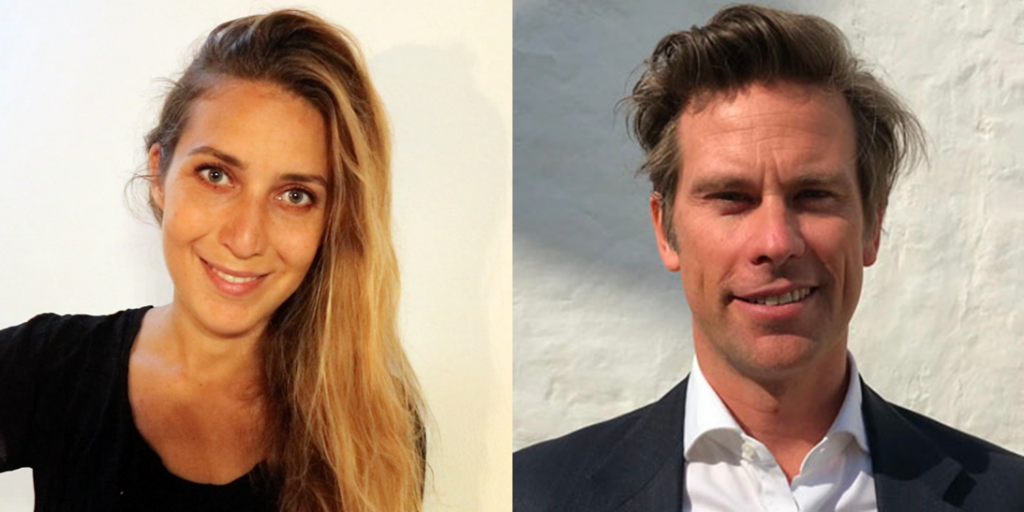
Paolo Morley-Fletcher is founder of AtmanWay, an independent consulting company that pioneers a unique approach blending Strategy, Wisdom and Action to facilitate growth and change in leaders, organizations and society at large. Paolo is the initiator behind the Wisdom Dialogue movement, a global initiative that champions Silence & Dialogue to activate a new Dialogue for humanity. Informed by Silence and sourced out of Wisdom, this Dialogue serves as powerful catalyst to translate Love into Action and foster enduring peace.
Nora Silini is a counsellor and facilitator, specializing in emotional and relational intelligence, leadership, and systemic change. Her talent lies in revealing individual strengths, fostering connections, and creating safe spaces for genuine vulnerability, enabling personal growth. Her work involves enhancing interpersonal skills, understanding relationship dynamics, and promoting effective communication and team development. She mentors individuals and groups, and aids organizations in building partnerships, focusing on the influence of human consciousness on relationships and behavior. Nora advocates for deep connections and addresses disconnection and loneliness by encouraging collective growth, or “WEvolution.”
You can watch a recording of this meetup here.
14 December 2023: Dr. Alex Gomez-Marin, The Consciousness of Neuroscience
The scientific study of consciousness began to cease being taboo only thirty years ago. Today, it is a field of study de facto and de jure, even in orthodox neuroscience. However, it is a young science; some even describe it as a proto-science. We continue to try to untangle “Galileo’s knot,” whom, four hundred years ago, programmatically declared the separation between objective reality (shape, position, velocity, etc.) and subjective reality (flavours, tastes, pains, etc.), giving ontological and methodological priority to the former and indefinitely postponing a science of consciousness. Furthermore, the current paradigm in research on human experience ignores, disdains, ridicules, and even censors what I call “the edges of consciousness,” which include all kinds of everyday exceptional experiences and anomalous cognitive processes. They are “edges” in a double sense, as they are “marginalized” (with all sorts of derogatory prefixes like “pseudo,” “super,” “extra,” and “anti”) while also being the true “frontier” of knowledge. I propose, therefore, that a new science of consciousness is possible, as long as, as Nobel Laureate in Physics Richard Feynman said, we are willing to refute ourselves as quickly as possible, transcending doubt and belief; only then will we truly progress. The study of the human mind holds surprises similar to those that revolutionized our understanding of matter-energy and space-time just a century ago, which we have not yet fully integrated into the citadel of academia or our daily lives. Current neuroscience has the same responsibility as early 20th-century quantum physics. Science is a journey into the unknown, or it is not science.
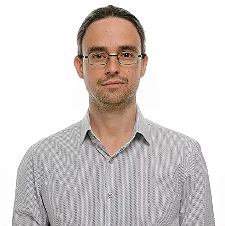
Dr. Gomez-Marin is a Spanish physicist turned neuroscientist. He holds a PhD in theoretical physics and a Masters in biophysics from the University of Barcelona. He was a postdoctoral investigator at the EMBL-CRG Centre for Genomic Regulation and a research fellow at the Champalimaud Center for the Unknown in Lisbon. His research spans from the origins of the arrow of time to the neurobiology of action-perception in flies, worms, mice, humans and robots. Since 2016 he is the head of the Behavior of Organisms Laboratory at the Instituto de Neurociencias in Alicante, where he is an Associate Professor of the Spanish Research Council. Combining high-resolution quantitative experiments, computational neuro-ethology and theoretical biology, his current research concentrates on the edges of human consciousness in the real world. In 2023 he was awarded the Linda G. O’Bryant Noetic Sciences Research Prize. Alex is also the director of the Pari Center in Italy.
You can watch a recording of this meetup here.
28 October 2023: What’s Happening in the ICRL Community
At this meetup, several dozen members of the ICRL community came together to share different activities, experiences, and opportunities.
![]()
You can watch a recording of this meetup here.
You can also access the session chat here: Chat From 2023-10-28 Meetup. In addition, two files were shared in the meeting: 2023-10 Executive Summary Worldview-Agility (C Ohrmann) and Faster Than Light Communication (I Brinkley)
23 September 2023: Dr. Richard Grant and Dr. Vasileios Basios, In Memory of Emilios Bouratinos
At the end of August, Emilios Bouratinos moved on to the next chapter in his story. During this meetup, Vasileios Basios and Richard Grant shared their thoughts and memories about Emilios and the impact he had on our world.
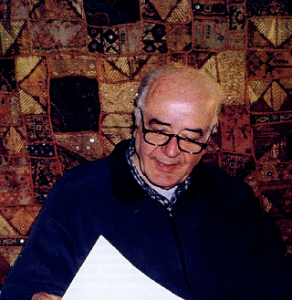
You can watch a recording of this meetup here.
10 June 2023: Dr. Ulisse Di Corpo and Dr. Jeff Dunne, Syntropy: Its Nature and Implications
In a nutshell, syntropy is a complement to its better-known sibling, entropy, which describes a causal universe in which systems tend to disorder and information and energy flow forward in time. In contrast, syntropy describes a purposeful universe in which energy and information flow backward in time, and offers sensible explanations for obscure physical phenomena like life.
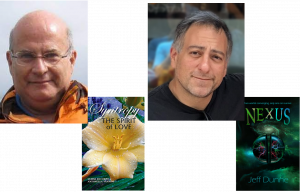
You can watch a recording of this meetup here.
You can also access the session chat here: Chat Session 10 June 2023.
6 May 2023: Dr. Advaitananda Stoian, A Fundamental Shift in Exploring Consciousness: The Pre-Existing Solutions to the Problems We Encounter
More and more scientists are fascinated by the subject of consciousness, yet today very few are able to approach this topic in a systematic manner because we also lack context. One of the big findings has been regarding the fact that consciousness itself has properties (attributes) that characterise it. These become a genuine frame in which we can study and explore this fascinating reality. For this reason, we have dived into exploring these properties (or attributes) of the godly consciousness, which can be found everywhere and studied thoroughly. Some examples of these are love, courage, beauty and wisdom. We have discovered that each of them has a specific frequency of vibration, represents a specific energy and also structures our reality accordingly – starting from our own level of consciousness.
Join us for a discussion around these discoveries, with examples of revolutionary results that have emerged through the experimental application of this new perspective on consciousness, which has the power to truly expand the boundaries of scientific exploration.
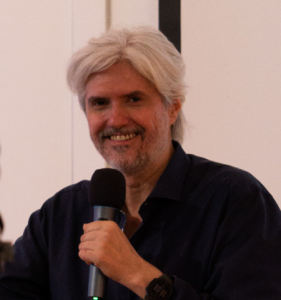
Advaitananda Stoian is a nuclear scientist, author, researcher, and life consultant. He has been a yoga and tantra teacher and practitioner for over three decades and succeeds to unite traditional spiritual teachings with the latest discoveries of modern science in a revolutionary way, providing authentic yet accessible transformational tools for the modern person.
Advaitananda is the principal teacher and founder of the Institute for Quantum Transformation where he currently leads high-performance programmes and courses for executives, leaders, and visionaries who aim for 360-degree success, including positively impacting society on a profound level.
Among other accomplishments, he is the co-author of the Esoteric Tantra Yoga Course, now taught in more than twenty countries worldwide, and the author of an established Meditation course taught in yoga schools and universities on three continents.
https://courses.quantumtransformation.dk
Link to a short video on the topic:: https://fb.watch/jNfiX032LN/
You can watch a recording of this meetup here.
8 April 2023: Dr. Roger Nelson, Indicative Structures in GCP Data: Models and Meaning
The Global Consciousness Project (GCP) began in 1998, ran a formal experiment for 17 years until December 2015, and continues to produce data today. The bottom line result is an average deviation of about 1/3 of a standard deviation, and a compounded departure from expectation of more than 7 sigma, with odds against chance of about 3 trillion to one. There is little dispute about the experimental results, but explanation is a different matter. Two models stand out. One suggests that there is a consciousness or information field sourced in the mass consciousness that comes about when events cause synchronized thoughts and emotions in large numbers of people. This implies field-like influences in the data to confirm the hypothesis. The second is a suggestion that experimenters choose felicitous timing of events based on precognizing future outcomes to capitalize on unusual but normal fluctuations that confirm the specified hypothesis.
Either model can credibly address the primary result, which addresses the experimental question. However, by looking at other measures of structure in the data or at applications, we change the question. Differences appear when we categorize the events. Multi-scale entropy calculations show structure that is general, not limited to the events. Novel applications using GCP data as predictors for economic models show interactions with the “real” world. Neuroscience tools for assessing evoked response potentials (ERP), applied to the GCP data show clear ERP structure, albeit on a scale of hours rather than milliseconds. All of these additional analysis perspectives identify structure that cannot be explained by an experimenter effect. They are, however, readily encompassed by field-like models.
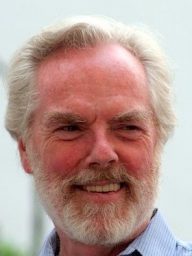
Dr. Nelson runs the Global Consciousness Project (GCP), an international collaboration studying mass consciousness. He conducted psi research at the Princeton Engineering Anomalies Research (PEAR) laboratory from 1980 to 2002, and while at Princeton, created the GCP in 1997. Interests in psychology, physics, philosophy, and the arts facilitate his research at the edges of what we know. His focus is the subtle interconnections that define an emerging humanity. https://global-mind.org
You can watch a recording of this meetup here.
11 March 2023: Jack Engstrom, In Search of Consciousness: ICRL & Arthur M. Young’s ISC
In this talk, Jack discussed his journey bridging and integrating science and consciousness, and shared some history about the Institute for the Study of Consciousness (ISC) in the context of PEAR and ICRL.

With a B.A. in chemistry from UC Santa Cruz, Jack worked as a research chemist at Stanford Research Institute. He was initiated in Transcendental Meditation, and became familiar with Arthur M. Young, who had just started his Institute for the Study of Consciousness (“ISC”) in Berkeley, for which Jack is now president. Jack has published and given talks on Laws of Form, and also on Arthur M. Young’s Geometry of Meaning and The Reflexive Universe: Evolution of Consciousness. His recently published paper, “Parsing to the Source: From Form to Light, From Known to Knowing, From Substance to Void”, is available online. Jack’s latest paper, “Laws of Form as a unity of layered knowledges from light!withinVoid into the mark of distinction and beyond: System.E2″, is being published as Chapter 16 in World Scientific’s Laws of Form: A Fiftieth Anniversary.
You can watch a recording of this meetup here.
11 February 2023: Rahul Goswami, Consciousness and Indigenous Knowledge Systems
This talk explored questions of the role and nature of consciousness in the context of indigenous cultures and worldviews.
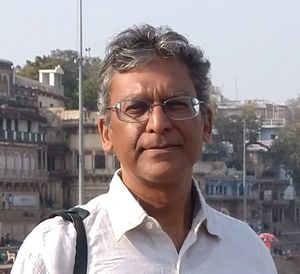
Rahul Goswami has researched and documented traditional knowledge (TK) systems for 30 years. He is a Unesco Asia expert facilitator on intangible cultural heritage (ICH) and has both advised national administrations in the Asia-Pacific on TK/ICH and conducted training for their safeguarding. He has worked as a consultant and adviser with India’s ministry of environment for its Indian Himalayan Region programmes, and with the ministry of agriculture on indigenous crop knowledge.
You can watch a recording of this meetup here.
14 January 2023: Dr. Wolfhardt Janu, The Web of Meaning
This talk explored the fascinating insights that arose from investigating Tantric rituals using a device and analysis approach called “oREGano” that was developed in 2019. This device measures the output of two Random Event Generators (REGs), scanning for common patterns and identifying correlations between the data streams. This approach has been demonstrated to detect and respond to patterns of a group’s synchronicity and altered state of consciousness.
This presentation combined a technical description of the measurement method with insights into their implications in the context of Tantric ritual structures. We are only just seeing the tip of the iceberg with respect to the potential that this new analysis approach offers, and the meetup will include a discussion with the audience about the philosophical and scientific implications of these initial findings.
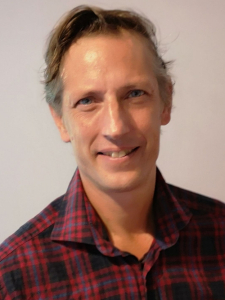
Dr. Janu is originally from Salzburg, Austria, and now resides with his family in Vienna. He has been fascinated with the natural sciences his whole life, and found a path into chemistry and physics via Greek and Roman philosophy and logic. It wasn’t until later in life, specifically after some life experiences that defied the model of the world offered by the established scientific paradigm, that he turned his attention to less traditionally-guided investigations, and ultimately into establishing his own laboratory for investigating the relationship between consciousness and matter at a deeper level.
You can watch a recording of this meetup here.
10 December 2022: Jeff Dunne hosted Conversations on the Opportunities of 2023
This meetup was a little different than the traditional ICRL meetup, as it did have a central speaker. Instead, each of the attendees shared a little bit about what is going on their life, and particularly what new and exciting things are on the horizon for 2023. The topics ranged considerably, but everyone’s additions were both enthusiastic and engaging. In fact, the session was so useful in sharing opportunities, that it was felt that it might be good to continue including this format once or twice each year going forward.
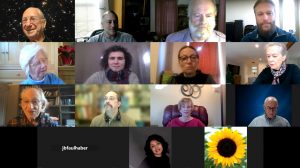
You can watch a recording of this virtual meetup here.
26 March 2022: Bob Cohen and Akhandadhi das, Discovering the Bhaktivedanta Institute for Higher Studies
This session discussed the work of the Bhaktivedanta Institute for Higher Studies (BIHS) based in Gainesville, Florida, which has undertaken collaborative projects worldwide as part of the Bhaktivedanta Institute formed in 1976. One focus of the BIHS is to explore the nature of consciousness and its interaction with both the body/brain complex and external reality, drawing on the empiric processes of yoga and meditation and the traditions of Vedic philosophy and metaphysics.
The talk will include a presentation on the metaphysical framework offered by Vedic traditions, including the three-fold categorization of the distinctive functions and properties of the physical world (including our bodies). experienced mental states, and consciousness as the experiencer. This framework has close parallels with the M5 model devised by PEAR yet also contains distinct ideas that help to ground many ‘anomalous’ phenomena. The talk will conclude with a discussion of current research projects that the institute has initiated and sponsored, ones actively applying the principles of this framework in the fields of neuroscience, AI, biology, physics and even cosmology.
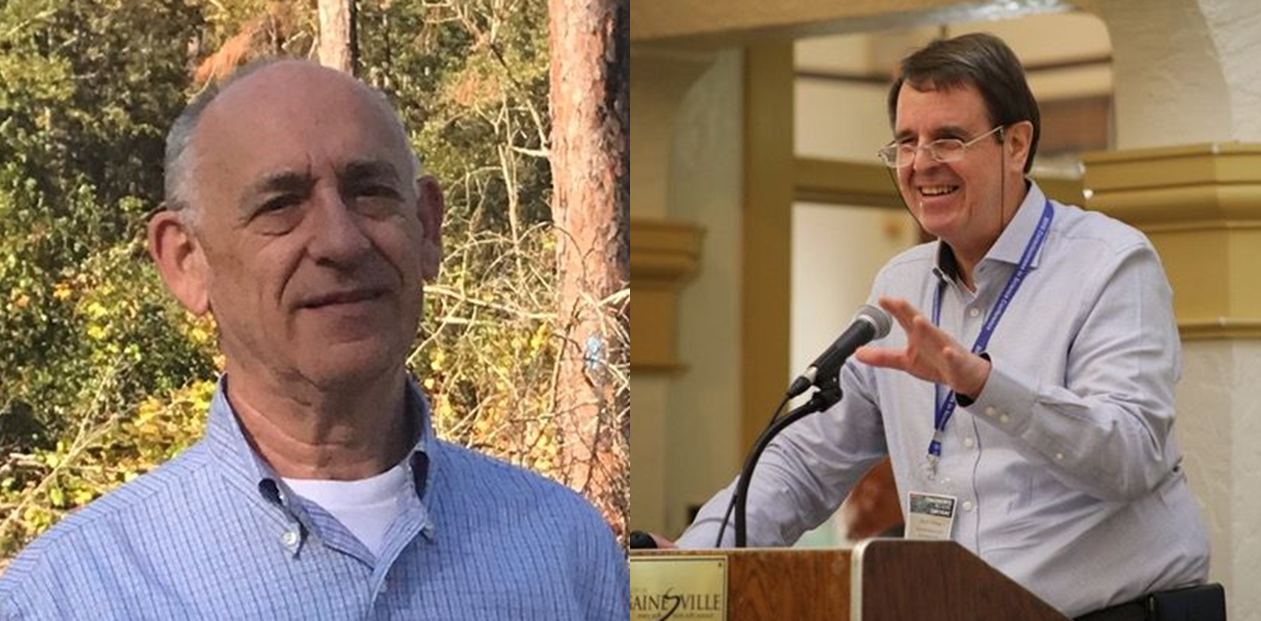
Bob Cohen was born in Newark, New Jersey, in 1949, completed his B.S. in Chemistry at Rensselaer Polytechnic Institute in 1971, and received his M.S. in Geology from Rutgers University in 1975. After a twenty-year career serving as a geologist and vice-president of a large regional environmental company, he currently works as an environmental consultant to state governments. He has been a member of the Bhaktivedanta Institute since the inception in 1976, giving a presentation at their First International Conference on Life Comes from Life in 1977, and working on a multitude of projects with R.L. Thompson from 1995 through 2008. He now serves as the Executive Director of the Bhaktivedanta Institute for Higher Studies.
Akhandadhi das was born in Belfast, Ireland and studied architecture at Bristol University. In 1975 he entered an ashram in the UK to study Vedanta philosophy and took monastic vows. He served as Principal of the Bhaktivedanta Manor theological college from 1982-1995. He has been a regular contributor on BBC since 1989 and sat on its Central Religious Advisory Board for six years. From 1996, he was director of Buckland Hall in Wales, an open venue for spiritual, philosophical and personal development and training. Currently, he is a director the Science and Philosophy Initiative in the UK, a multi-disciplinary association exploring the issues of consciousness & physical systems principally in neuroscience, biology & physics; and also of the Bhaktivedanta Institute for Higher Studies (BIHS). His particular area of interest is the metaphysics of consciousness.
You can watch a recording of this virtual meetup here.
5 March 2022: Dr. Dean Radin, Is Consciousness Causal?
Within the body, it certainly seems as though consciousness is causal. I want to wave my hand, and it waves. But what about the more interesting question of whether consciousness acts beyond the body? Laboratory tests with random number generators, as well as many other kinds of physical targets, have effectively demonstrated a correlation between aspects of consciousness and the behavior of distant physical systems. But correlation does not entail causation, and other, non-causal interpretations of these experiments have been proposed. To help analytically explore this question, I have been re-analyzing the data of the Global Consciousness Project to see if that database supports Einstein’s famous complaint about the indeterminism of quantum theory, namely his quip that “God does not play dice with the universe.” Initial results of this analysis suggest that Einstein may have been correct after all.
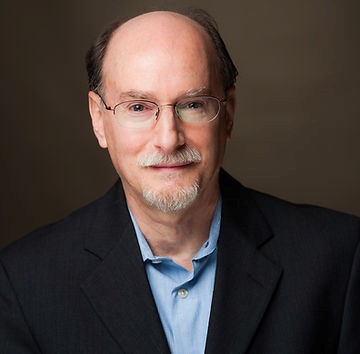
Dean Radin is Chief Scientist at the Institute of Noetic Sciences (IONS) and Associated Distinguished Professor at the California Institute of Integral Studies. He earned an MS (electrical engineering) and a PhD (psychology) from the University of Illinois, Urbana-Champaign. Before joining the IONS research staff in 2001, Radin worked at AT&T Bell Labs, Princeton University, University of Edinburgh, and SRI International. He has given over 650 talks and interviews worldwide, and he is author or coauthor of some 300 scientific and popular articles, four dozen book chapters and forewords, two technical books, and four popular books translated into 15 foreign languages: The Conscious Universe (1997, HarperCollins), Entangled Minds (2006, Simon & Schuster), Supernormal (2013, RandomHouse), and Real Magic (2018, PenguinRandomHouse).
Due to internet connectivity issues, the recording for this session was broken into two videos: Part 1 and Part 2.
22 January 2022: Dr. Jeffrey Dunne, Language: The Ultimate Tool for Cleaving Humanity
Jeff Dunne examines the limitations of language as a means of bringing disparate people together: what are the fundamental drivers that cause us to misunderstand one another, especially in situations where we are easily convinced that our understanding is solid? And perhaps more importantly, how can those limitations be overcome?

Abstract: There is perhaps no better reflection of the complexity and sophistication of humans than the languages they use to communicate. Ironically, however, the same tool that enables us to express and share complex ideas and feelings also carries the potential to create unparalleled rifts and confusion. As humans, we quickly forget that words are metaphors whose interpretations depend strongly on the life experiences of the listener, experiences that are almost never the same as those of the communicator. It is no wonder that miscommunication and misunderstanding have caused levels of pain, anger, and destruction that are at least as great as from instigators like greed and ideology.
You can watch a recording of this virtual meetup here.
18 September 2021: Dr. Peter Merry, ECOintention-Working with the Energy and Information Fields of Large Scale Systems
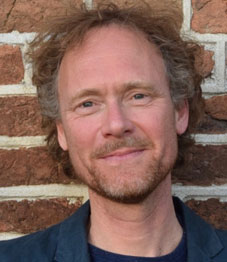
For over 25 years a group in the Netherlands and Germany have developed a practice for working with the energetic information fields of large areas of land and organisations. The early years included work in a Russian national park as well as large estates in Eastern Europe and the UK and demonstrated that this work at a distance was having a measurable positive impact on the nature and wildlife of these areas. The practice went through a journey from radionics, to resonance therapy, to ECOtherapy and now to ECOintention, and led to what became the Center for ECOintention. Dr. Merry has also been responsible for bringing the PEAR equipment to the Broughton Sanctuary in Yorkshire, UK, to create a visitor experience to tell the PEAR story and have people experience directly their interconnectedness with the world around them. (See The Wyrd Experience.)
Peter is co-founding Chief Innovation Officer at Ubiquity University and is one of the world’s top experts on transformative leadership, working in and across different sectors, training government ministers, CEOs and civil society leaders In facilitating integral change processes in multinational corporations and government ministries. He is a recognised expert in the field of futureproof learning, evolutionary systems dynamics and integral leadership. He had his first book published in English and Dutch (Evolutionary Leadership, 2005) a second one in 2019 called Why Work? on designing work for people and planet, and a third one in November 2020 called Leading from the Field that describes 12 principles for working consciously with the energetic information fields of any project that you lead. He has an MSc in Human Ecology from Edinburgh University and a PhD from Ubiquity’s Wisdom School on volution theory. For more information, see https://petermerry.org, and LinkedIn.
You can watch a recording of this virtual meetup here.
21 August 2021: Vasileios Basios, Complexity, Complementarity, and Transitions
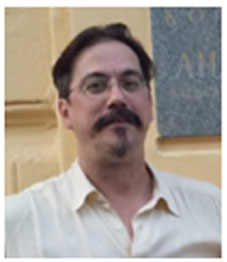
Vasileios is a senior researcher at the Physics of Complex Systems Department of the University of Brussels, where he conducts interdisciplinary research on self-organisation and emergence in complex matter, complementarity, and aspects of the foundations of complex systems. During his formative years he worked within the team of Ilya Prigogine at the Solvay Institutes for Physics and Chemistry in Brussels. He is interested on the history of ideas in science and their role in the transformation of science beyond the prevailing mechanistic world-view. He believes that never before has the need for a qualitative change in science been so apparent and pressing and that complexity studies have made such a radical change not just possible but imperative. He is inspired by the prospect of introducing self-reflection into the practice and the understanding of science, and he aspires to contribute insights from complex systems science that can help put forth a resilient, flexible and robust network of networks comprising of individuals, groups, organizations and research initiatives towards this noble goal.
Vasileios will take us on an exciting journey through chaos and complexity theory as an essential condition for developing more sophisticated and reliable thinking in relation to consciousness studies, especially towards a self-reflexive interdisciplinary science of consciousness as envisioned by the Galileo Commission, and will discuss prospects of current ICRL Galileo Commission, and will discuss prospects of current ICRL projects along these lines.
You can watch a recording of this virtual meetup here.
24 July 2021: Stephan Schwartz, Mind Rover – Archaeological Exploration with Remote Viewing
The key question of Stephan’s talk is: “Can some aspect of human consciousness obtain sense impressions from a distant locale, the unknown past, or from the future, via an anomalous information channel that can be objectively validated?”
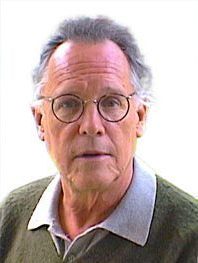
Stephan is a scientist, futurist, and award-winning author and novelist, a Distinguished Consulting Faculty of Saybrook University, and a BIAL Fellow. His daily web publication Schwartzreport.net covers trends that are affecting the future. He has been studying the nature of consciousness for over 40 years, particularly that aspect independent of space and time. He is part of the small group that founded modern Remote Viewing research, and is the principal researcher studying the use of Remote Viewing in archaeology. In addition to his own non-fiction works and novels, he is the author of more than 200 technical reports, papers, and academic book chapters, and has written numerous magazine articles for Smithsonian, OMNI, American History, American Heritage, The Washington Post, The New York Times, as well as other magazines and newspapers.
You can watch a recording of this virtual meetup here.
19 June 2021: Ulisse Di Corpo and Antonella Vannini: Syntropy, Life, and Attractors
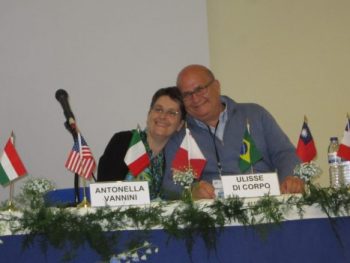
Most of us are familiar with the concept of entropy, the dissipative process that indicates the degree of disorder or uncertainty in a closed physical system. Entropy is unidirectional and always proceeds forward in time, but it fails to account for many scientific paradoxes, such as life itself. Less well known is its complementary principle: syntropy, the subject of this presentation. Syntropy produces a continuous increase in complexity through the action of attractors that emanate from the future and provides systems with their purpose and design. Rather than generating disorder, syntropy draws individuals and systems together. Syntropy can be regarded as the life force that emanates from the unifying action of love.
Ulisse Di Corpo holds degrees in experimental psychology and a PhD in statistics and social research. He works in the field of social research and provides methodological support and software tools to researchers. In 1977 he developed the vital needs theory, which was the subject of his theses in psychology and statistics and stems from the conflict between syntropy and entropy.
Antonella Vannini is a practicing psychotherapist and hypnotherapist with a PhD in cognitive psychology and has conducted experimental research on emotions and retrocausality. A Thai Chi instructor and expert in martial arts, Vannini is interested in the encounter between East and West. She is now exploring techniques to harmonize mind and body, as well as developing the vital needs theory and the uses of the law of syntropy in the field of psychotherapy.
More about their work can be found at: www.sintropy.org and www.sintropia.it.
You can watch a recording of this virtual meetup here.
22 May 2021: Apela Colorado on From Confrontation to Collaboration, Indigenous and Western Sciences at the Crossroads.
Apela Colorado Ph.D., of Oneida-Gaul ancestry, has dedicated her life’s work to bridge Western thought and indigenous worldviews. As a Ford Fellow, Dr. Colorado studied for her doctorate at both Harvard and Brandeis Universities and received her Ph.D. from Brandeis in Social Policy in 1982. She founded the Worldwide Indigenous Science Network (WISN) https://wisn.org/ in 1989 to:
• Foster the revitalization, growth, and worldwide exchange of traditional knowledge;
• Safeguard the lives and work of the world’s endangered indigenous culture practitioners;
• Develop an interface with Western science
In 1997, Dr. Colorado was one of twelve women chosen from 52 countries by the State of the World Forum to be honored for her role as a woman leader.
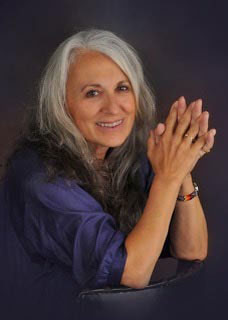
Apela says of herself: My Oneida (tribe) and French ancestry, historically oppositional forces, created a schism in me. I was neither Indian enough nor white enough to live in either world. I had to reconcile my white, French, colonizer genealogy in order to be whole. I began to search, and after many years found my ancestral home in the south of France, the Occitan indigenous people and cultural ceremonies in the Paleolithic painted caves of the Dordogne.
I left a fully tenured university professorship position thirty-two years ago to establish a non-profit organization, the Worldwide Indigenous Science Network, an upstart organization that challenges the world to embrace its Indigenous roots, to admit to our cultural shadows and to join arm in arm to reclaim our heritage of clean air, waters, and earth as the competition increases for the earth’s remaining energy resources (most of which are on Indigenous lands).
You can watch a recording of this virtual meetup here.
3 April 2021: David Lorimer on Gnosis in a Future Science of Consciousness.
David is a writer, poet, lecturer, and editor, who is founder of Character Education Scotland, Programme Director of the Scientific and Medical Network, and former President of the Wrekin Trust and the Swedenborg Society. He has taught philosophy and modern languages at Winchester College, is a founding member of the International Futures Forum, and was a Trustee of the St. Andrews Prize for the Environment, among his many contributions and honors.
At the age of 24, David pressed the “Eject” button from his conventional career path in merchant banking and set off on a quest for wisdom and a deeper understanding of life. Since that time, he has devoted his life to education in the broadest sense, and his path has led him to the study of philosophy, meaning and spirituality, consciousness, death and transformation, and responsibility, ethics and society, and he has published over a dozen books that address these concepts. The last 50 years have seen the rise of interest in mystical and near death experiences and their significance for the nature of consciousness and reality. He suggests that these are one expression of no-dual gnosis that can give us an insight into deeper structures of consciousness where head and heart come together, pointing to an overall participatory approach beyond the dichotomy of subject and object.
David’s newly published book, “A Quest for Wisdom: Inspiring Purpose on the Path of Life,” brings together 25 of his highly acclaimed essays examining the nature of life and death, questions of meaning and purpose, and the challenge of how we can live more harmoniously together. He hopes that readers will be inspired, as Dr Albert Schweitzer put it, in our common task ‘to become more finely and deeply human.’
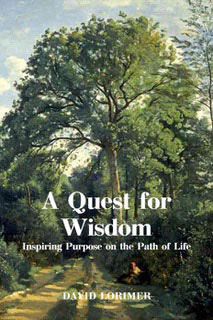
You can watch a recording of this virtual meetup here.
13 March 2021: Dr. Jim Tucker speaks on Children’s Memories of Past Lives.
Children’s reports of memories from a past life have been the focus of study at the University of Virginia for nearly 60 years. Beginning with Ian Stevenson, researchers have investigated more than 2,500 cases from around the world. Dr. Jim Tucker will provide us with a review of the research, emphasizing recent work on cases in the US.
Jim B. Tucker, MD, is a child psychiatrist and the Bonner-Lowry Professor of Psychiatry and Neurobehavioral Sciences at the University of Virginia. He is Director of the UVA Division of Perceptual Studies, where he continues the work of Ian Stevenson on children who report memories of previous lives.
He is the author of two books that together have been translated into twenty languages, Life Before Life: A Scientific Investigation of Children’s Memories of Previous Lives (2005) and Return to Life: Extraordinary Cases of Children Who Remember Past Lives (2013), a New York Times bestseller.
His publications include numerous papers in scientific journals, and he has given presentations to both scientific and general audiences. He has also been interviewed on such programs as Good Morning America, CBS Sunday Morning, and NPR Weekend Edition.
You can watch a recording of this virtual meetup here.
20 February 2021: Don Campbell’s talk, Creativity: It’s Not What You Think, draws on over 30 years of his experience as a sculptor to share how he pushes the creative boundaries of his own work. Citing some of the great artists, innovators and change makers of our time, Don shows artists and non-artists how to:
- Stimulate the flow of creativity through a process of “deep listening.”
- Expand listening capacity to include intuition.
- Express creativity through sensing, not thinking.
- Align oneself with one’s life’s purpose.
- Overcome the obstacles that stop most people from following their creative impulse.
- Achieve “presence” and “stillness,” the essential portals to higher creativity.
Don Campbell is an award winning sculptor who lives in Skillman, New Jersey. His sculptures have been in shows throughout New Jersey, New York, Pennsylvania and Canada. He has taught portrait and figurative sculpting. He works primarily in clay, sculpting realistic portraits and figurative works and likes to explore improvisational sculpting.
You can watch a recording of this virtual meetup here.
07 November 2020: In his talk, The Heart and the Field of Collective Consciousness, Rollin McCraty discussed the Global Coherence Initiative (GCI), which is examining the interactions between humanity and the earth’s energetic fields. An important aspect of the GCI is the Global Coherence Monitoring System which is designed to measure the resonances in the magnetic fields generated by the earth and ionosphere. Data showing correlations between rhythms in solar, geomagnetic, and ionospheric fields and human nervous system activity will be shown, including data that suggests humanity is far more interconnected with each other and the earth’s magnetic field environment that previously imagined.
Rollin McCraty, Ph.D. is Director of Research of the HeartMath Research Center at the HeartMath Institute. As a psycho-physiologist, Dr. McCraty’s research interests include the physiology of emotion, heart-brain communication and the global interconnectivity between people and the earth’s energetic systems. Findings from this research have been applied to the development of tools and technology to optimize individual and organizational health, performance, and quality of life. He has been featured in a number of documentary films such as I am, The Truth, The Joy of Sox movie, The Power of the Heart, Solar Revolution, Deconstructing Sentience, and The Living Matrix among many others.
You can watch a recording of this virtual meetup here.
03 October 2020: In his talk entitled “Evolution, Belief, Gods and Ghosts” Professor Rui Diogo takes a biology-based look at how humans have long made sense of their worlds. The talk integrated research and fascinating case studies from diverse scientific fields to address deep and broad questions and capture the attention of people interested in biology, anthropology, history, philosophy, comparative religions, psychology, sociology, or other fields, as well as to all those curious about their daily inner lives.
Dale Graff: Time Exploration: Perceiving Future News Photographs and other Excursions into Precognition and Synchronicity. Dale is a retired aerospace engineer/physicist with a background in the aerospace future systems designs and the Gemini space program, followed by work for the military intelligence community exploring the viability of remote perception.
Michael A. Cremo: Human Origins and Antiquity: A Vedic Perspective. The Vedic historical texts contain accounts of a human presence extending much further back in time than modern science allows. There is archeological evidence consistent with this. Michael will review some examples of such evidence, as documented in his book Forbidden Archeology, and share his experiences in presenting it to scientific audiences.
Michael A. Cremo is an independent researcher in human origins and antiquity. He is a member of the World Archaeological Congress and the European Association of Archaeologists. Cremo is the principal author of the book Forbidden Archeology (mentioned above), a comprehensive historical survey of archaeological anomalies, and is also author of Human Devolution: A Vedic Alternative to Darwin’s Theory. Cremo examines human origins and antiquity from a worldview with foundations in ancient Indian thought.
Wayne Jonas, MD Getting from Health Care to Health and Wellbeing. Dr. Jonas, a practicing family physician, an expert in integrative health and health care delivery, and a widely published scientific investigator, will speak on the need to “get from health care to health and wellness” as explained in his book, How Healing Works, published in 2018 by Ten Speed Press. From 2001-2016, Dr. Jonas was Chief Executive Officer of Samueli Institute, a nonprofit medical research organization supporting the scientific investigation of healing processes in the areas of stress, pain and resilience. Dr. Jonas was Director of the Office of Alternative Medicine at the NIH from 1995-1999, and prior to that, served as Director of the Medical Research Fellowship at the Walter Reed Army Institute of Research. He is a Fellow of the American Academy of Family Physicians.
Ruth Rosenbaum: The Space of Transformation: Exploring Unseen Dimensions of Healing. Over thirty years of studies have shown that the most significant factor in positive change in psychotherapy, more important than any particular technique or theory, is the relationship, the bond, between patient and therapist. This talk explores the non-linear, intersubjective nature of this bond and the clues it reveals regarding the paradigm shift that often accompanies deep personal transformation. Ruth Rosenbaum, Ph.D., is a licensed psychoanalyst in private practice of psychotherapy for over 25 years. She is also a certified biofeedback therapist, a certified Kundalini yoga instructor, and has studied Tibetan Buddhist philosophy and meditation with Lama Pema Wangdak. Her clinical work facilitates the integration of mind, body and spirit.
Scott McVay: Stuff on the Edge. From Scott McVay’s book Surprise Encounters with Artists and Scientists, Whales and Other Living Things, given five stars by Kirkus, he will choose one-third of 152 stories to weave a tapestry of “Stuff on the Edge.” He is excited at the prospect of beginning with Aimee Morgana and Kisi, a loquacious African grey parrot, and Rupert Sheldrake, tuning the talk to the raison d’etre of the ICRL for maximum interaction. Among the persons to be touched on is the The Dalai Lama, two dolphins with a fidelity almost beyond our comprehension, another who reveals how dolphins can save humans, an Inuit, Raymond Aguvluk, who knows whales beyond the Bowhead and Beluga, the sonic response of Orcas to a wild night of the Aurora borealis, Carl Sagan, Pete Dunne, NJ’s lead birder, the Loch Ness Monster, the turning point of a life, shuffling off the mortal coil…plus a few poems.
Kai Kusinow Leads Tai Chi Workshop, December 8, 2018. Kai Kusinow returns to the ICRL MeetUp series, this time to give a Tai Chi workshop at our next meeting on December 8th. He will review the Woo Style of Tai Chi that is graceful movement for improving balance and stability, and restore good posture. It also helps to bring out inner energy for health and healing. Kai was trained by his mother and the ancient teachers who had taught her in The Woo Style of Thai Chi and a form of Body Alignment healing. He’s been teaching Tai Chi and Body Alignment for almost 25 years.
Aimee Morgana: Animal Art and Consciousness, November 10, 2018. Aimee Morgana is an artist, researcher, teacher, and founder of The N’Kisi Institute, a non-profit organization dedicated to the study of communication with other species and the human-animal bond, most notably in her work in collaboration with the African gray parrot N’Kisi. N’Kisi has learned to communicate using human language. A recent development is that N’Kisi has been making art, including attempts at representational art. He is also using words to describe what he is doing. In this presentation on Animal Art and Consciousness, Aimee will discuss her work with N’Kisi, and show examples of his art and communication. What can this tell us about the animal mind? Learn more.
John Kruth: New Studies of Unconscious PK Effects on Electronic Devices, Sept. 15, 2018. John is the Executive Director of the Rhine Research Center (www.rhine.org) and the Founder and Education Director of the Rhine Education Center. From psychic healing to PK, Kruth explores the energies of the human body and how they influence the world around us, both consciously and unconsciously. Do people produce light, and if they do, can that light carry information or have an effect on the objects, animals, and even other people? Learn more.
Kai Kusinow: Cosmic Riders and Universal Consciousness, May 19, 2018. Kai was born in Displaced Person Camp in Germany in 1946 and came to the U.S. in 1956. From the age of four, he was trained by his mother and the ancient teachers who had taught her in The Woo Style of Thai Chi and a form of Body Alignment healing. He was also tutored to understand all about the Circle of Life and be one with the Universe and to be able to embrace all. Learn more.
Dr. Roger Nelson: The Ordering Effect of Consciousness, April 21, 2018. The founder of the Global Consciousness Project will introduce the technology and science of the research, then will give examples showing effects of globally shared emotional states and make some suggestions about meaning and possible mechanisms. …. Learn more.
Brenda J. Dunne: Quirks of the Quantum Mind – April 7, 2018. Co-author and retired researcher and manager of the PEAR Lab, Brenda will discuss the metaphorical implications of quantum mechanics, suggesting that, like any model of reality, it doesn’t describe physical reality, but rather our subjective experiences of that reality. …. Learn more.
Natalia Perlaza: Sound Based Meditation – December 2, 2017. Musician Natalia Perlaza has created a sound based meditation that complements our common experience of life and provides a path to attaining wholeness while living “in the world.” …. Learn more
Dr. William F. Bengston: Can Healing be Reverse Engineered and Made Practical and Scalable? – September 23, 2017. Social Scientist and Healer, Dr. Bengston will describe the most recent results from 35 year of research on anomalous healing and the questions those results pose. … Learn more
Dr. Jay Kappraff: The Mathematics of Design and the Golden Mean – April 9, 2016. Author and lecturer Dr. Jay Kappraff will spoke on the connection between the Parthenon and Ancient Vedic India, plants and planets, and the Golden Mean in design. … Learn more
Ben Kessler: Author, Activist, and Permaculturalist – February 27, 2016. Ben Kessler is a naturalist, artist, gardener, teacher, activist, and permaculturalist from Afton, VA. His new collection of essays, Rivers of Wind: Reflections on Nature and Language, will shortly be available through ICRL Press. The book covers wide ground, from Native American history to neuroscience, extinction ecology to etymology. … Learn more
Leslie Nolan, Visionary Artist, Designer, Teacher on Intentional Creativity – January 16, 2016. Leslie Nolan, is founder of The Venus Transits: Exploring Your Inner World through Intentional Creativity, and will speak on how consciousness is made manifest through… Learn more
Dr. Neal Grossman, author of “The Spirit of Spinoza: Healing the Mind” – November 21, 2015. Toward a Post-Materialist Social Order (Back to Plato)Empirical research over the past 100 years has established beyond a reasonable doubt that consciousness is not… Learn more
Professor and Dean Emeritus Robert G. Jahn on the Science of the Subjective -October 24, 2015. Bob Jahn, Chairman of the Board of ICRL, and founder and director of the Princeton Engineering Anomalies Research (PEAR) laboratory, spoke on the Science of the… Learn more
Evan Pritchard: The Cultivation of Consciousness in Native American Culture – June 27, 2015. Professor Evan Pritchard is a descendant of the Micmac people (part of the Algonquin nations) and the founder and director of The Center for Algonquin Culture, a group… Learn more
Just in Time for Spring Training! Rick Leskowitz and The Joy of Sox – March 14, 2015. What happens when a Harvard psychiatrist combines his research in invisible healing energies with his love of the Boston Red Sox? You get The Joy of Sox: Weird Science… Learn more
Nilton Maltz, Carl Jung scholar – January 31, 2015. Nilton Maltz is an Analyst in Training at the Jungian Psychoanalytic Association in New York City. He attended the School of Visual Arts in Rio De Janeiro, Brazil and… Learn more
Jennifer Morgan, author, lecturer, retreat leader and master storyteller.– December 6, 2014. Our next Meetup will feature Jennifer Morgan, award-winning author, educator, lecturer, master storyteller and retreat leader inspired by the work of Maria Montessori,… Learn more
Gabe Sereni, International Academy of Consciousness (IAC) –November 8, 2014. Our next Meetup will feature Gabe Sereni, a teacher and researcher at the International Academy of Consciousness, a global non-profit research and educational… Learn more
Michael Urheber, author of Bava’s Gift: Awakening to the Impossible– September 20, 2014. Our next meetup will feature author Michael Urheber, whose life changed dramatically when he observed what we would call an “anomalous” event. It first appeared as an… Learn more
